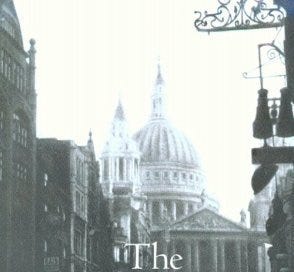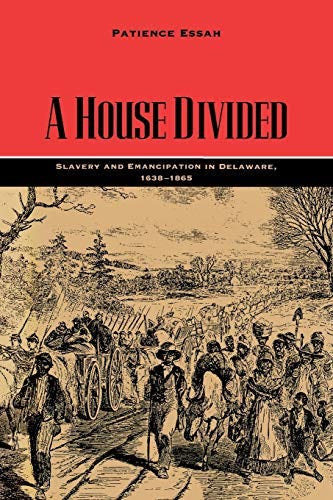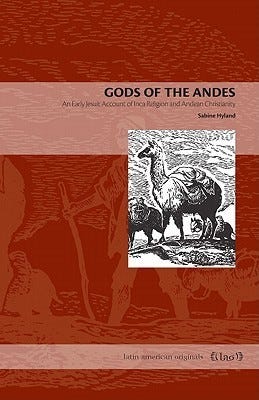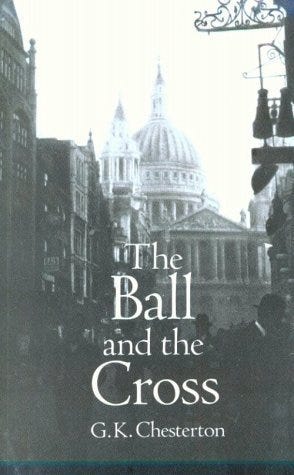A House Divided: Slavery and Emancipation in Delaware, 1638-1865, by Patience Essah (216 pp; 1996)
Who should read this? People who’re already familiar with the early United States and love digging into details.
Delaware had a very unusual history with slavery. On the one hand, a lack of land and profits in grain caused slavery to become economically marginal, which led to restrictive laws (such as not being able to transport slaves into or out of the state) which made it even more marginal. On the other hand, the remaining slaveowners and their allies refused to actually abolish it. Abolition bills were regularly proposed up to the Civil War (unlike in the rest of the South where they were unthinkable after c. 1830), but they failed every time.
So, in Delaware, we see a very different relationship between slavery and abolitionists than in the rest of the Union: they're living next to each other and debating and fighting in the same state legislature. We see the slavers, shorn of economic excuses, frankly defending slavery because it undergirds a racist hierarchy in society. We see the abolitionists (mostly Quakers) trying to improve conditions and organizing to sue against violators of the new laws - with some success.
Essah's book tells this story by looking at element after element of what happened and what it looked like for the people living in Delaware.
Unfortunately, she writes this in a very dry style. Among other dryness, it's from a very eagle's-eye perspective that never really gets down to ground level to let you see any of the persons involved; and, it's told nonchronologically so that it's hard to put together the story. Even knowing the overall story of slavery in the United States, Delaware is so different from anywhere else that a different arrangement could've made it much easier to get into this book.
That said, the story is good and interesting even though this telling isn't.
Gods of the Andes: An Early Jesuit Account of Inca Religion and Andean Christianity, by Sabine Hyland (132 pp; 2011)
Who should read this? People who want a contemporary perspective on the Spanish conquest of America.
In 1594, an anonymous author wrote in Spanish a short and surprisingly sympathetic description of Incan pagan religion. He blamed the conquistadores for devastating public morals among the Incans, while failing to actually teach them Christianity. Scholars have attributed this work to Blas Valera, a Jesuit who was imprisoned by his order on unclear charges probably linked with politics. Assuming this attribution is correct, this work would explain why he fell into such disfavor.
This book translates Valera's work, along with a short biography of him and a modern commentary on his work and on the Incan pagan religion. This commentary was quite useful, because Valera twists the actual truth on a number of points. He casts Incan practices as more similar to medieval Catholic practices - both the details of individual rituals and broader concepts such as claiming some of their chief priests lived like hermits. The commentary attributes this (and I agree) to an attempt to make them seem more sympathetic to his contemporary Spanish audience. He was in fair company there; apparently another contemporary Spanish author less sympathetic to the Incans twisted their religious practices to be more similar to medieval Islamic practices! I think I can see Valera's heart there, and I totally sympathize with his efforts to bring out the good things in Incan practices rather than sweeping it all away as harmful falsehoods.
After this, we get a brief polemic against the conquistadores, what they did to Incan society, and how they didn't even actually preach Christianity. When other people were writing about bad morality among Incans, he points out, they were talking about the postapocalyptic post-conquistadore situation! So we can hardly blame the Incans for that, after the conquistadores had swept away their whole society and enslaved almost everyone. And when people talk about how little reverence the Incans have for Christianity, he points out, that's no surprise because nobody's ever really evangelized them, so the only examples of Christians they have are their conquerors and enslavers.
The Ball and the Cross, by G. K. Chesterton (208 pp; 1910)
Who should read this? People who like Chesterton and his style of doing philosophy.
It’s been a while since I read any of Chesterton’s novels, and I'd forgotten how fun and how wild they can be. If you try to make sense of it, or realistically worldbuild around it, you fail. But if you go along for the ride and explore the idea, it's great.
In this book, a young naive Christian raised in the remote Scottish islands comes to London and, offended at the anti-Christian propaganda he sees on the window of an independent newspaper office, challenges the writer to a duel. The atheist author, who's been distressed at how nobody seems to care about whether Christianity is true, enthusiastically accepts! They're both promptly hauled to court, where the judge squints at them as both insane and out of touch with the modern day before throwing them out with a caution.
As they proceed from place to place trying to find somewhere to fight their duel, they latch onto each other as kindred spirits who care about the same questions of life. Meanwhile, the surrounding world is more and more convinced they're insane, finally throwing them into an asylum... where Chesterton points out that it's the rest of the world that's insane.
A Wind from the South, by Diane Duane (421 pp; 2016)
Who should read this? People who like the picture of historical fantasy and don’t mind a slow pace.
This's a historical fantasy novel set in the medieval Alps at the birth of Switzerland. The magic is from Swiss folktales mixed with Duane's own structure; the nonmagical world is from the story of William Tell and the birth of Switzerland.
I loved the idea here even before I saw Gessler's name and realized it was at the very birth of Switzerland, and I loved it even more after that. It's a noble tale, and Duane handles it nobly and respectfully. Even as she adds in magic around the edges, she keeps the core - of William Tell's dedication and his skill - the same.
The first half of the book seemed painfully slow, as our protagonist grows up in her small village with gradually-increasing hints of magic. To some extent, this continues throughout the book - it’s not a plot-driven novel, and it never moves fast. But in the very slowness, I got a better feeling of medieval peasant life than most other novels I'd seen. As our protagonist says when contemplating leaving her home, it's a ceaseless sequence of work and limited horizons. Though (as I rather expected), the very ordinariness seems refreshing later as she dips her toes back in after magical adventures, knowing that after them - because of the reputation she's gained - she can never truly return.
Duane originally wrote this as the first volume of a trilogy, but because of problems with her publisher, she never continued the trilogy. In a way, I'm sorry. But in another way, this book stands very well alone.








Thank you for more reviews. I've put the Incan book on my list of books to read.